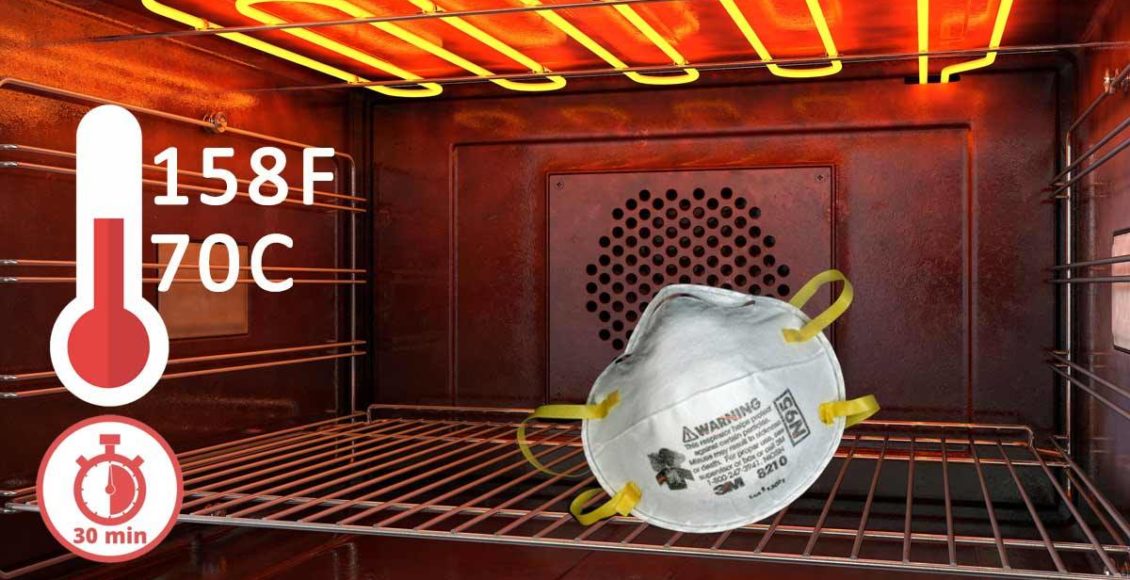Stanford researchers confirm: N95 masks can be sterilized in an oven by low-temperature heating

Stanford University researchers have found that N95 masks can be effectively sterilized and reused without affecting their filtration ability.
This can happen through low-temperature heating in conventional kitchen ovens.
Considering Coronavirus face mask shortages, scientists from Stanford have conducted a study confirming that the N95 masks can be decontaminated in a domestic environment. They suggest that leaving the mask in a regular kitchen oven at 70C/158F for 30 minutes will efficiently sterilize it. Therefore, the masks are suitable for reuse.
“70C /158F heating in an oven for 30min, or hot watervapor from boiling water for 10 min, are additional effective decontamination
methods.”
The masks are a key component of medical workers’ full personal equipment protecting them from possible Coronavirus infection.
The study by Dr. Amy Price and Dr. Larry Chu claims that the N95 masks can be repeatedly decontaminated with no harm for their effectiveness.
This discovery may help decrease face mask shortages all around the globe. However, they note that it’s yet unknown how wearing one mask numerous times will affect the fit of N95 masks. Additionally, they cite the National Institute for Occupational Safety and Health, stating:
“There is no way of determining the maximum possible number of safe reuses for an N95 respirator as a generic number to be applied in all cases. Safe N95 reuse is affected by a number of variables that impact respirator function and contamination over time.”
In their research, the Stanford scientists have also considered other methods of sterilizing N95 masks. They have tested UV light exposure for 30 minutes, alcohol soaking, and chlorine-based disinfection. While these methods do decontaminate the masks, they significantly reduce the filtration efficiency. The researchers are certain that to be useful, a sterilizing method “must eliminate the viral threat, be harmless to end-users, and retain respirator integrity”.
The massive spread of COVID-19, in a matter of just a few months, has led to a severe global shortage of all kinds of personal protective equipment(PPE).
Many frontline paramedics, doctors, and nurses are forced to reuse or even work without any protective materials. This way, they are putting their own lives in great danger. Hopefully, researchers and scientists will join forces in discovering and establishing new effective ways of reusing this vital equipment.


